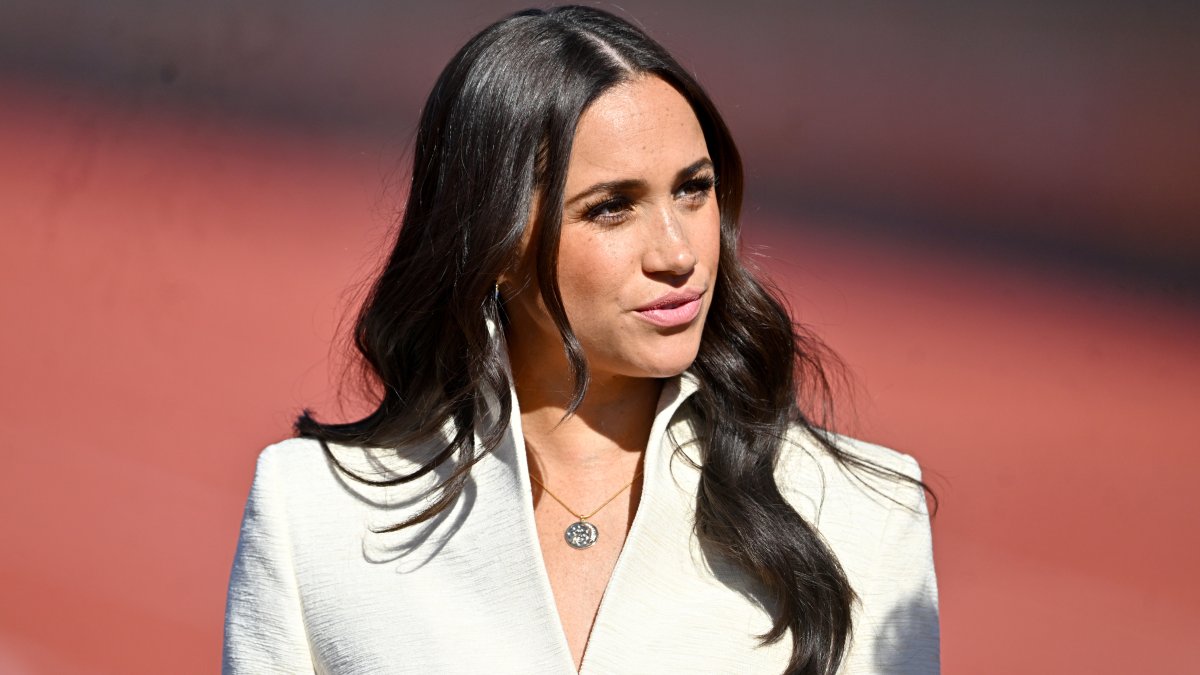Meghan, the Duchess of Sussex, not long ago dealt with the stereotype of the “angry Black woman” in the newest episode of her podcast, “Archetypes.”
The racial stereotype that paints and interprets Black females as temperamental, overly loud, susceptible to violence and typically bitter also fuels damaging perceptions of Black women of all ages in strategies that can maintain them back in their lives and occupations. In her several years since stepping down as a senior member of the royal relatives, Meghan has been vocal about how racism has impacted her mental health, career and interactions.
On Tuesday, Oct. 25, the former actor tackled the stereotype’s thought, record and impression with actor Issa Rae and television host and comic Ziwe. The a few gals talked about how the trope experienced been used to them and how it inspired them to change the entertainment industry.
Diving into the matter, Meghan referenced a ebook she examine throughout the early levels of the COVID-19 pandemic, known as “Algorithms of Oppression,” which examines how the electronic age has affected our perception of each other. Just one part of the reserve talks about how search engines’ autofill capabilities have the opportunity to affect people’s views.
Meghan recalled how the book’s creator typed “why are Black women so…” on a research engine, resulting in choices like, “Why are Black women of all ages so loud?” “Why are Black women of all ages so indicate?” and “Why are Black females so indignant?”
“Those have been the seeds staying planted,” Meghan mentioned at the start out of the podcast. “We all know that sometimes factors make you feel offended or unhappy or damage or upset — and that’s not a gender or racially unique feeling. But, this trope of the angry Black female, it persists.”
Meghan went on to share her possess encounter in encountering the stereotype for the duration of her times as an actress.
“I remember when I was auditioning, and even the concept of Black roles — I keep in mind individuals casting sheets where by the description of the character, she constantly experienced to have an edge or an frame of mind,” Meghan, who starred in seven seasons of “Suits” on United states of america Network, said.
Rae echoed Meghan’s expertise, recalling how, in the early 2000s, fact television displays fanned the flames of the now deeply seeded stereotype. Jointly, the two appeared back on displays like “The Apprentice” and “The Flavor of Love” and how they featured Black feminine personalities like Omarosa Manigault and Tiffany Pollard. At the time, the two females typically served as foils to the white characters in their respective reveals and were being generally only ever depicted as bringing chaos and fury to scenes.
“It was this ruthless Black woman or this uncouth Black woman,” Rae famous. “We have been created to giggle at them as opposed to or to chortle with them in some means. But it was just like these caricatures of Black women of all ages.”
A long time later on, as Rae recalled, the pendulum of the portrayal of Black women in tv and films swung to the reverse extraordinary. Black woman characters turned only “fierce” and only “flawless.” According to Rae, this depiction influenced her to combat for the title of her to start with tv sequence, “Insecure.”
“I want to be capable to exhibit that not all women are like this. I don’t experience fierce, flawless all the time,” Rae defined. “These figures aren’t that all the time, and which is Alright.”
She added: “It was like we overcorrected this other narrative, and now we couldn’t be human. We have been superhuman.”
Talking of her personal encounter, Ziwe shared how the stereotype has prompted others to admit the intimidation they come to feel when interacting with her confront to face.
“Usually, when I’m conversing to an interviewer, the to start with matter that they say to me is, ‘I’m terrified of you,’” she remarked. “I’m like, Oh my God, that hurts my thoughts. I’m a delicate Pisces. Like, I really don’t want you to be frightened of me. That’s not my goal.”
As Ziwe notes, this interpretation comes even with the point that element of her tactic is inspired by white male comedians like Howard Stern, Stephen Colbert and Andy Cohen, who are generally viewed as to be deferential.
For all a few women, unpacking the offended Black woman stereotype has meant comprehending how it has impacted them in their every day life. As Rae set it, exploring how the stereotype has limited their behavior in expert configurations or even “just being” in their possess life has meant recognizing that emotions are not minimal to 1 race or gender.
This story first appeared on TODAY.com. Extra from Nowadays:



